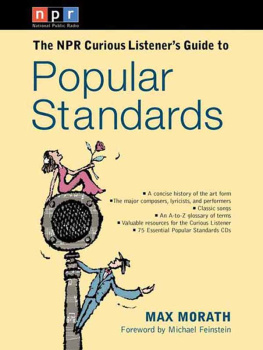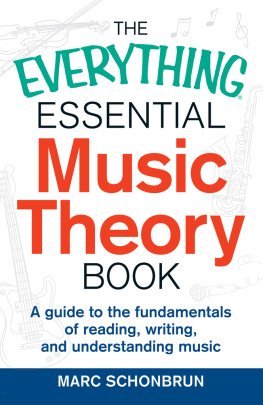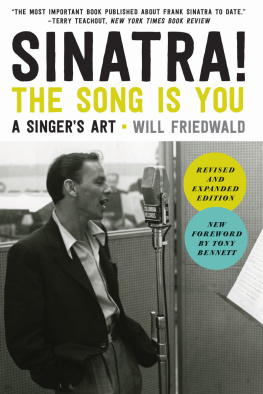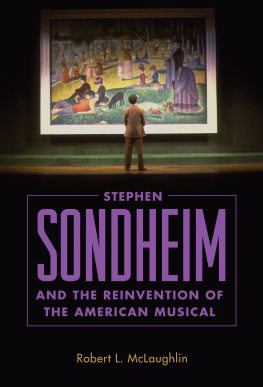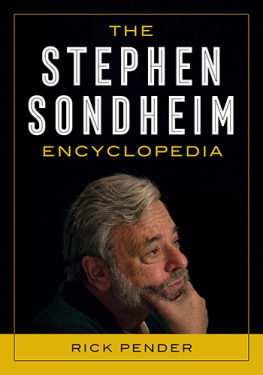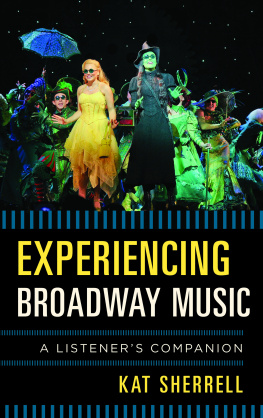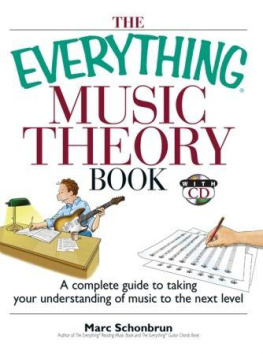A Perigee Book
Published by The Berkley Publishing Group
A division of Penguin Putnam Inc.
375 Hudson Street
New York, New York 10014
PRODUCED BY GRAND CENTRAL PRESS
Paul Fargis, Director
Judy Pray, Executive Editor
Nick Viorst, Series Editor
NATIONAL PUBLIC RADIO
Murray Horwitz, Vice-President, Cultural Programming
Andy Trudeau, Executive Producer, Cultural Programming
Bruce Scott, Music Producer (Opera), Cultural Programming
Barbara A. Vierow, Project Manager, Business Development
Kate Elliott, Project Manager, Business Development
NPR, npr, and National Public Radio are service marks
of National Public Radio, Inc. and may not be used
without the permission of NPR.
YES SIR THATS MY BABY, by Gus Kahn and Walter Donaldson 1925 Bourne Co. Renewed, Assigned to Gilbert Keyes Music (administered by the Songwriters Guild of America) and Donaldson Publishing Co. All Rights Reserved. Used by Permission WARNER BROS. PUBLICATIONS U.S. INC. Miami, FL 33014
Copyright 2002 by Grand Central Press and National Public Radio
Book design by Tiffany Kukec
Cover design by Jill Boltin
Cover art by Dan Baxter
All rights reserved. This book, or parts thereof, may not be reproduced in any form without permission.
Visit our website at www.penguinputnam.com
ISBN 978-1-1012-0311-8
Without limiting the rights under copyright reserved above, no part of this publication may be reproduced, stored in or introduced into a retrieval system, or transmitted, in any form, or by any means (electronic, mechanical, photocopying, recording, or otherwise), without the prior written permission of both the copyright owner and the above publisher of this book.
Making or distributing electronic copies of this book constitutes copyright infringement and could subject the infringer to criminal and civil liability.
First edition (electronic): April 2002
I am deeply indebted to every author of every book listed in our Resources for Curious Listeners, and to the diligent folks who construct and maintain the Websites on American music that are cited in that chapter. Of the authors, I stand quite literally in awe of the task Robert Lissauer set for himself in producing his monumental Encyclopedia of Popular Music in America; my copy is now affectionately dog-eared, highlighted, and coffee-stained in tribute. American Popular Song, the James T. Maher/Alec Wilder classic has also been close at hand. Robert Kimballs many works on the Popular Standards and their creators have been invaluable, especially the recent Reading Lyrics (with Robert Gottlieb). Bob Kimball has my additional gratitude for his personal support and advice. Thanks also to Mike Montgomery, Joan Morris, Michael Feinstein, Edward A. Berlin, Gene Jones, Murray Horwitz of NPR, Ellen Donaldson, Charles Sussman of Donaldson Publishing, Donald Kahn and Rosemarie Gawelko of Warner Bros. Publications.
My editor at Grand Central Press, Nick Viorst, deserves more than casual thanks for his professionalism and stamina. Nick plays Good Cop and Bad Cop with equal skill and experience, and has kept me from serious literary crimes such as woolgathering, outline evasion, and excessive adjective. Thanks are also due Judy Pray and Paul Fargis at Grand Central.
Best until lastmy wife, Diane Fay Skomars. She occasionally read proof and checked grammar as spouses are expected to do, but was far more helpful (and candid) about content and clarity. I am happy to report, however, that whenever she found it necessary to say I dont understand these two pages at all, she followed up with an offer of a cold beer or a back rubsometimes botha sure sign of a happy marriage and an underused spell checker. Thanks, Dolly.
by Michael Feinstein
D o you ever listen to the songs that people hum or whistle in the street? I do. Psychologists say that a song appearing in our brain at any given moment is a clue about what is really going on in the subconscious mind. You can learn a great deal about people that way. For example, Id avoid someone who sings You Always Hurt The One You Love and embrace the purveyor of Love Is Here To Stay instead. And that is the beauty of the American Popular Standard; a song exists for every conceivable emotion and mood, every nuance of possible behavior.
The greatest creators of this extraordinary body of work always searched for a way to newly express oft-expressed emotions, and my how they succeeded! To cite a few examples by some of my favorite writers: Jerome Kern crafted amazingly complex melodies that send the heart soaring with songs like Long Ago And Far Away, The Song Is You, The Way You Look Tonight, and Till The Clouds Roll By. George Gershwin distilled the vitality and rhythmic swagger of 1920s New York with Fascinating Rhythm, Swonderful, and Ill Build A Stairway To Paradise. As Gershwin matured in the thirties with Of Thee I Sing and They Cant Take That Away From Me, other Depression-era writers made their contributionslike the unjustly neglected Harry Warren, who gave us I Only Have Eyes For You, Lullaby of Broadway, and Remember Me. There are dozens of other great composers that could match Jerry, George, and Harry every step of the way; these just happen to be the melodists who spring to mind at this moment. It is no clich to say that they were all good, because by todays standards, even the worst of them still hold up fine.
The wordsmiths who lyricized these extraordinary melodies were endlessly clever and poignant: Ira Gershwin with his playful lopping off of syllables; Oscar Hammerstein soaring to new heights with his proverbial larks; Dorothy Fields purveying the sarcastic perceptions of a sassy dame; Johnny Mercer, the chameleon who was at home as much with Harold Arlen and Blues In The Night as he was with Henry Mancini and Moon River; E. Y. Harburg with the cutting social commentary of When The Idle Poor Become The Idle Rich and the yearning of Over the Rainbow. Then you get to the double geniuses like Irving Berlin, Frank Loesser, and Cole Porter, who supplied both music and lyrics with deceptive ease.
But what good is a song unless it is sung? I have a massive collection of vintage sheet music featuring photos of countless great and not-so-great performers who brought these works to life. They were the messengers without whom the songs would have laid silent. The lineage runs from Al Jolson to Louis Armstrong to Bing Crosby to Nat King Cole to Frank Sinatra to Bobby Darin to Harry Connick, Jr. Female vocalists more than held their own, from Sophie Tucker to Ruth Etting to Ethel Waters to Billie Holiday to Doris Day to Rosemary Clooney to Diana Krallan oral tradition in the literal sense of the word. Many of the great songs have become inseparably linked with specific performers, thus ensuring their survival. It is not possible to think of Over the Rainbow without thinking of Judy Garland or Puttin on the Ritz without Fred Astaire.
It all becomes overwhelming when you try to figure out where to start and what to listen to. Going to your local CD (or record) store is sure to promise a headache and more confusion. So, along comes Max Morath and this marvelous book to sort it all out and put it in clear-eyed perspective. He ably negotiates the waters by describing what a Popular Standard is and isnt, explaining its form and history, and suggesting who and what to listen to. My only regret is that you cant hear Max himself singing, playing, and illustrating all the songs. But thats why we have NPR. Happy listening!
Michael Feinstein is a Grammy-nominated performer, composer, and arranger, and one of the worlds foremost musical scholars and archivists. Among other accomplishments, Feinstein has appeared on Broadway, toured the globe, played for presidents and royalty, and recorded twenty albums. His musical illumination of legends such as George and Ira Gershwin, Irving Berlin, Jerome Kern, Johnny Mercer, Duke Ellington, and Harry Warren have truly made him Americas Ambassador of Song.

